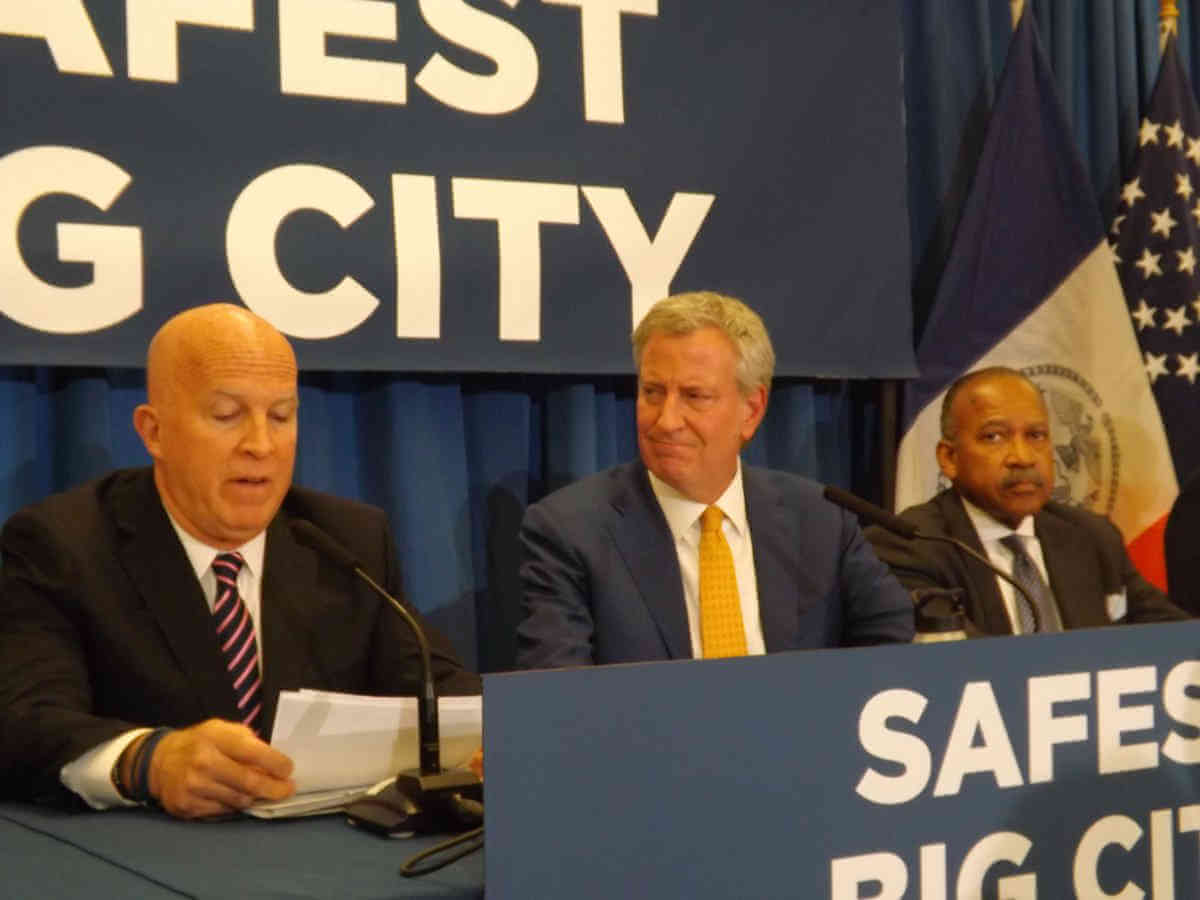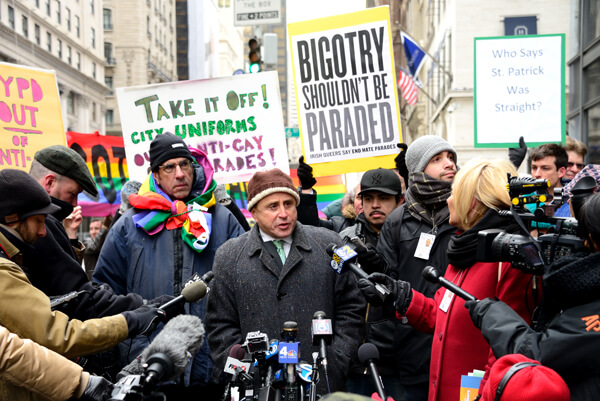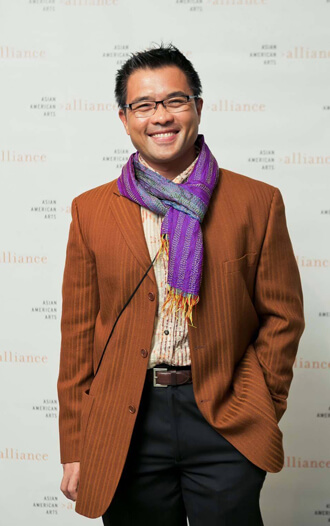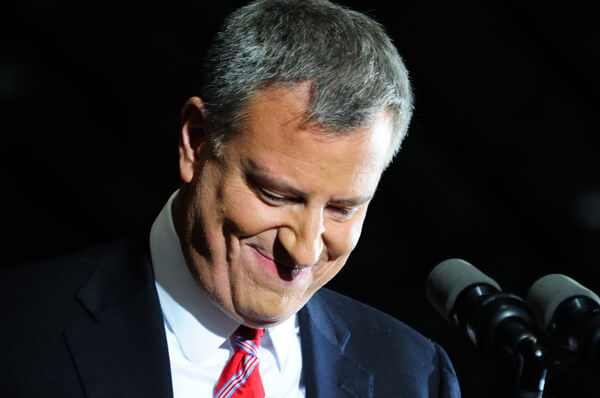New York City’s police commissioner opened the city’s Pride Month by apologizing for the police raid on the Stonewall Inn in 1969 that was intended to shut down a blackmail ring that was victimizing gay men and operating out of the bar.
“I’m not an expert on what occurred at Stonewall,” Commissioner James O’Neill said at a June 6 community briefing held at police headquarters in Lower Manhattan. “But I do know that the actions taken by the NYPD were wrong. The actions were discriminatory and oppressive and for that, I apologize.”
The 1969 raid spawned rioting that continued for two or three nights. That event is seen as marking the start of the modern LGBTQ rights movement. Some historians see the riots as a turning point in the movement.
The raid was led by Seymour Pine, a deputy inspector in the NYPD’s public morals division, who had been instructed to break up the blackmail ring and shut the bar down. While conceding that the police were “prejudiced” against LGBTQ people, Pine said during a 2004 discussion at the New York Historical Society that the target of the raid was organized crime.
“We weren’t concerned about gays,” said Pine who died in 2010. “We were concerned about the Mafia.”
The Stonewall Inn was operated by the Genovese crime family. It is likely that every after-hours club in the West Village and throughout the city at that time was controlled by the Genovese, Gambino, or Columbo crime families. Those criminal organizations were allied with police in local precincts.
Beginning in 1970, the Knapp Commission explored police corruption in a range of industries. For its investigation into bars and clubs, it focused on the 19th Precinct, which covers the Upper East Side, and the 6th Precinct, which covers the West Village. In the 6th Precinct, the commission looked largely at police corruption in LGBTQ clubs and bars.
The raid faced resistance from the crowd outside that trapped Pine and his squad in the bar and from police most likely from the 6th Precinct. When they radioed for assistance, a voice was heard over the radio saying, “Disregard that call.”
David Carter, who authored “Stonewall: The Riots That Sparked the Gay Revolution,” a 2004 book and the definitive account of the riots, asked Pine at the 2004 event if the voice saying, “Disregard that call” belonged to a 6th Precinct officer. Pine declined to answer, leaving unanswered whether Pine’s raid on the bar upset cops involved with the blackmail scheme.
While the police clearly misjudged how the community would react to the raid, the best evidence is that the police were trying to assist gay men who were being blackmailed or at least shut down a blackmail operation.
“I have no doubt about it,” Carter told Gay City News. “That’s what I wrote in my book and I have a good amount of evidence to support that conclusion… The evidence is very strong. The purpose was to shut down the Inn and a blackmail operation that was targeting gay men.”
Ed Murphy, who was gay, was employed at the Stonewall in 1969. Earlier in the ‘60s, Murphy was arrested for participating in a national blackmail ring that targeted gay men and used operatives who pretended to be police officers. That history was described in a 2012 article on Slate.com.
O’Neill’s apology was certainly well received by the audience at the briefing and media reports suggest that those not attending welcomed it as well. An exception is the Reclaim Pride Coalition, which is producing an alternative Queer Liberation March on June 30. Calling the apology “empty” and “given under pressure,” RCP said in a statement that “the NYPD continues to be an oppressive force in our communities even on the day of Pride.”
The June 6 event was intended to brief the LGBTQ community on safety issues that could impact this year’s 50th commemoration of the Stonewall riots and the WorldPride events that will take place in the city.
The audience of several hundred saw a video that is shown to police officers instructing them about this year’s Pride events. In addition to the commissioner, speakers included Chief Rodney Harrison, who runs the Patrol Services Bureau, Deputy Inspector Mark Molinari, the commanding officer of the Hate Crimes Task Force, Deputy Commissioner John Miller, who heads Intelligence and Counter-Terrorism, and Ravi Satkalmi, the deputy director of intelligence analysis. Satkalmi announced that he is “a proud member of the LGBTQ community,” which drew loud applause.
While the presentations, Satkalmi’s in particular, were ominous in alluding safety risks, the speakers said that the NYPD has no evidence of any specific threat targeting this year’s Pride events. The city has seen a 64 percent increase in hate crimes, with 184 in the first five months of 2019 versus 112 in the first five months of 2018, with most of that increase due to hate crimes targeting Jewish people and institutions. Most of the crimes are minor.
“By and large what we see across the city is, as you describe, either criminal mischief, property damage, or graffiti,” said Dermot Shea, the chief of detectives, during a June 4 press conference on crime statistics. “That makes up the vast majority, and we treat them as seriously as we would an assault, quite frankly, because of the message of hate that it sends to all of the residents of the city so we will be clear: we will continue to aggressively investigate these crimes.”



































